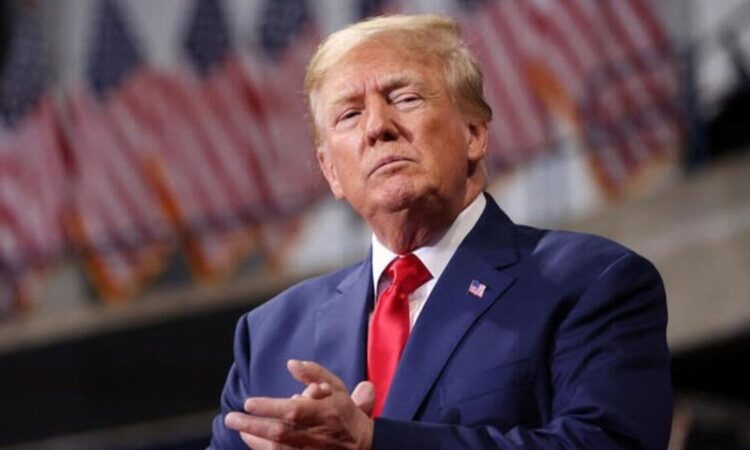
Former US President Donald Trump has proposed abolishing federal income tax if he wins the US presidential election.
Trump is the presumptive presidential nominee of the Republican Party and is running against current US President Joe Biden.
While Trump has long called for tax cuts, he has now proposed a radically different plan for his presidency: the abolition of the federal income tax.
In a private meeting with Republican lawmakers, Trump said that he could abolish the federal income tax altogether and make up the revenue shortfall with hike in tariffs on imports of goods into the country, according to Yahoo Finance.
The report cited a post on X (formerly Twitter) by Republican lawmaker Thomas Massie that said: “Trump briefly floated the concept of eliminating the income tax and replacing it with tariffs.”
Separately, in a meeting with business leaders, Trump has said he would reduce corporate tax from the current rate of 21 per cent.
Trump’s pitch to business leaders has come at a time when
more and more American business leaders are supporting Trump
. These leaders include those who had distanced and even denounced Trump a few years ago after the January 6, 2021 incident when a mob of supporters egged on by Trump attacked the US Capitol to overturn the results of the 2020 US presidential election.
Will Trump abolish income tax?
Even as Trump proposed to Republican lawmakers the abolition of federal income tax, it is not certain if he would do so.
Yahoo Finance noted that Trump has a tendency of making different economic pitches depending upon the audience he is addressing. It further noted that Trump could go ahead with both the abolition of federal income tax and the reduction of corporate tax rate.
The report noted that while Trump told the business leaders he would cut corporate tax from the current rate of 21 per cent to 20 per cent, he has indicated that he could cut it to as much as 15 per cent.
The report suggested that the reason Trump did not suggest the ‘all-tariff’ plan for the economy to business leaders was that it would have got a cool reception as businesses would not be able to make cheap imports of raw materials or machinery from abroad under such a regime.
How will US economy be if income tax is abolished?
Under a second Trump presidency, the abolition of federal income tax would lead to a shortfall of $2.1 trillion in government revenues, said Investopedia’s Editor-in-Chief Caleb Silver to News Nation.
Experts have said this would increase the cost of living for average American families. The cost of living will rise for the common Americans as the companies hit from higher tariffs will pass on the cost to the customers — the average Americans. This would mean that common Americans could end up making up for the government’s fallen revenue.
While common Americans will not pay federal income tax, they would pay more to companies that are taxed — which would make up for increased costs from tariffs by charging more from customers. Silver said the taxed companies’ “financial burden would simply shift to everyday goods through higher prices, making the United States’ cost of living rise astronomically”.
Brenden Duke, an economist at the Center for American Progress Action Fund (CAPAF), said that an average American family could see a rise of cost of living up to $5,000 a year, as per Newsweek.
Separately, Nobel Prize-winning economist Paul Krugman said the average tariff rate under Trump’s ‘all tariff, no income tax’ regime would be at least 133 per cent. He said in a thread on X that while such tariff-based economy worked in the 19th century when the government was small, “believing that we can go back to those days is just ignorant”.
Explaining how he arrived at the figure of 133 per cent tariffs, Krugman wrote, “Imports are about 14 per cent of US GDP. Federal income tax revenue (not including payroll taxes) is about 8 per cent. So you might think replacing it would require a tariff rate of 8/14 or around 57 per cent. But tariffs would raise the cost of imports to consumers, so we’d import less, which would mean you need a higher tariff rate. But this reduces imports further, meaning a still higher tariff, and so on.”
Then, through mathematical calculations, Krugman arrived at the figure of 133 per cent.
Find us on YouTube






